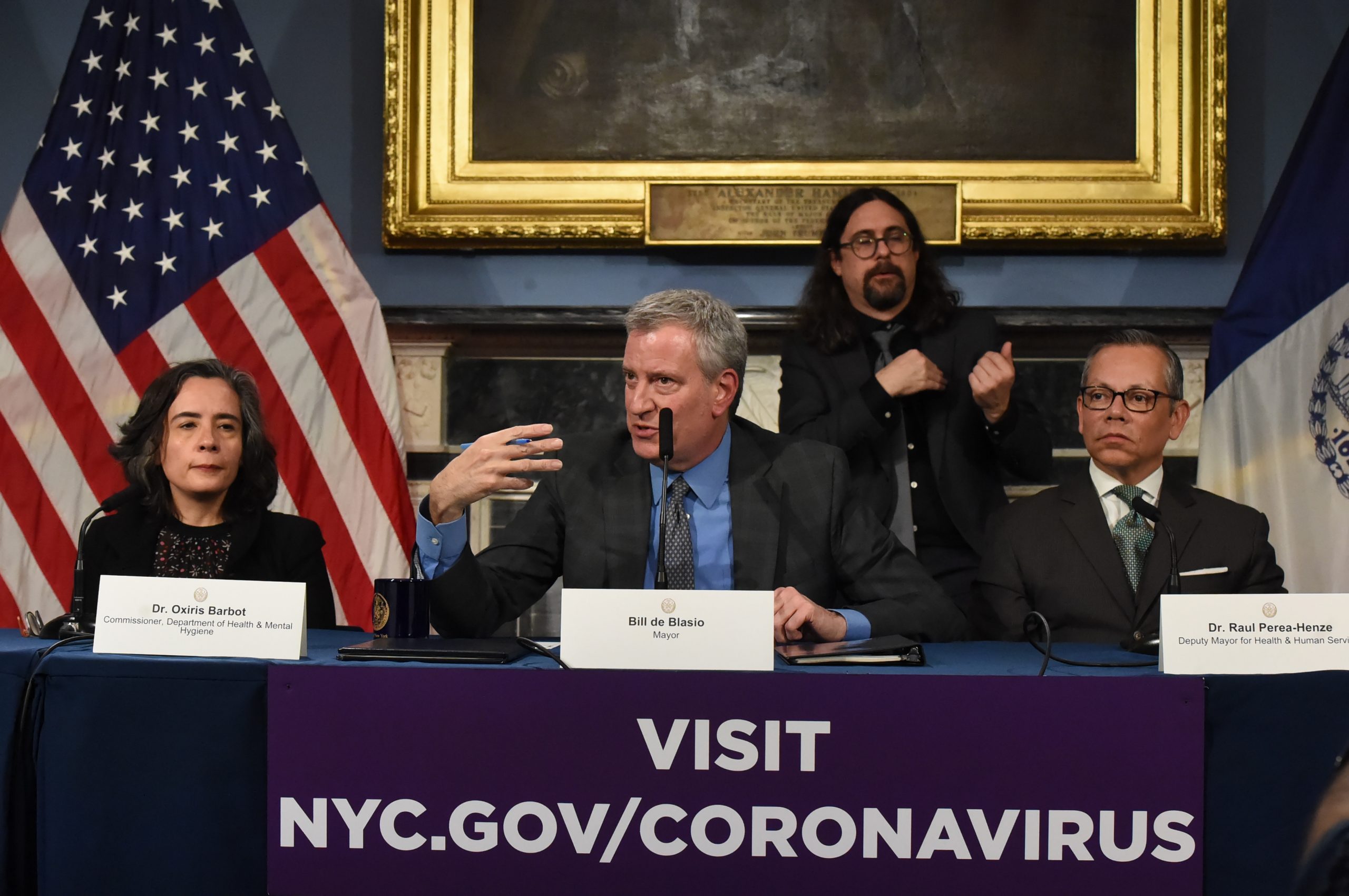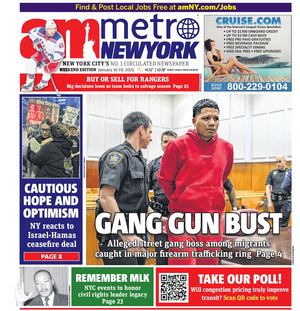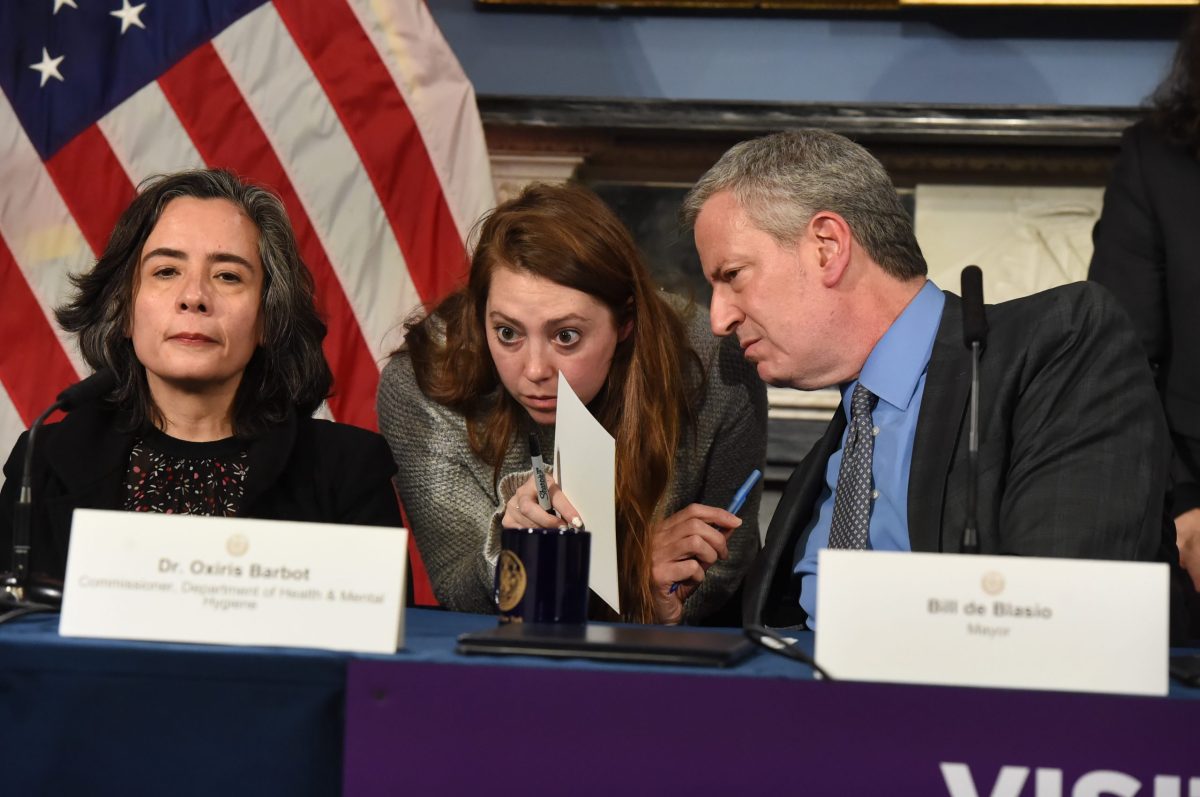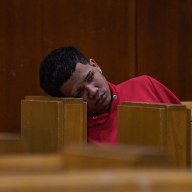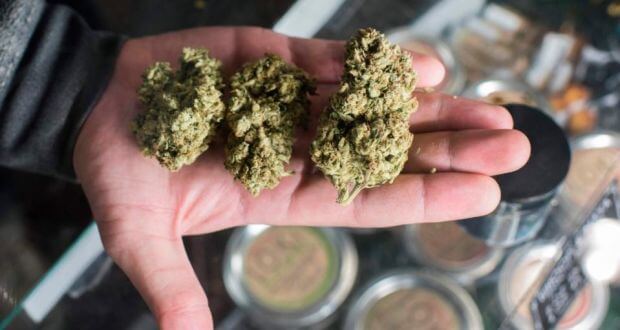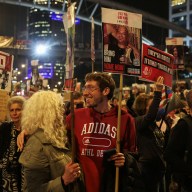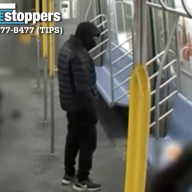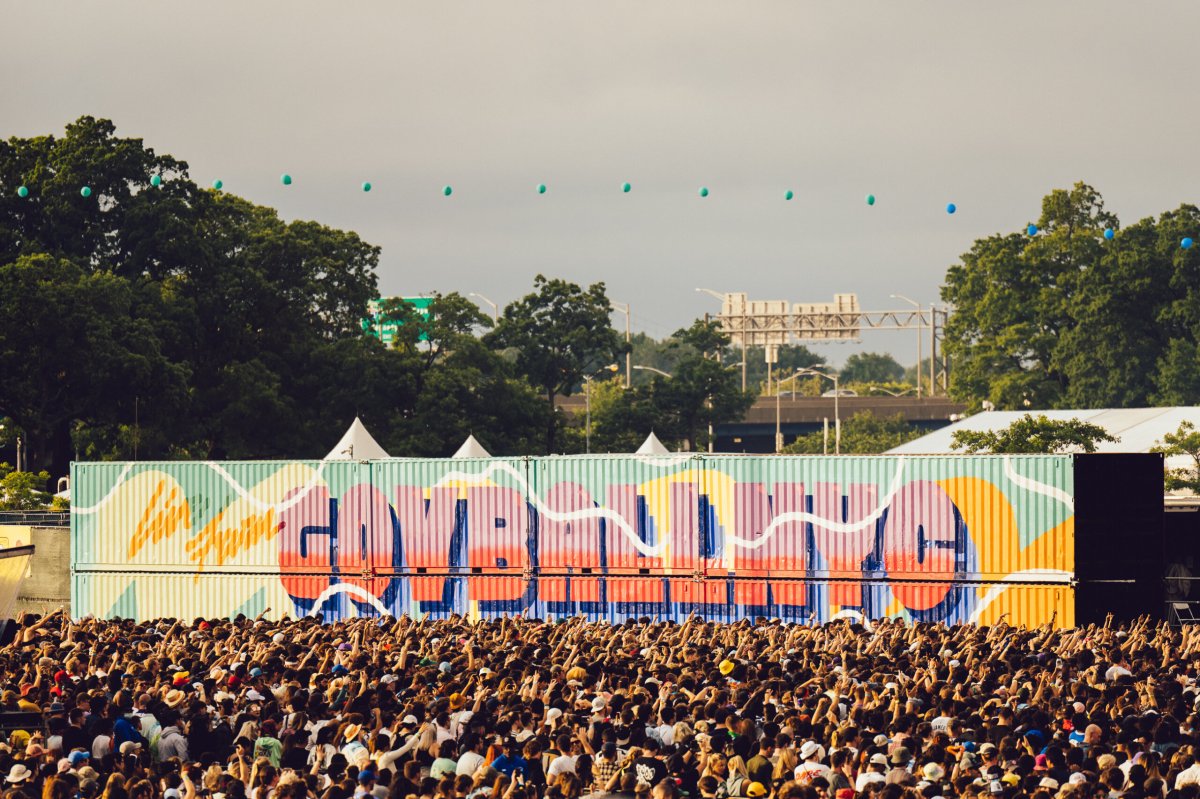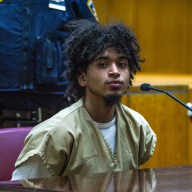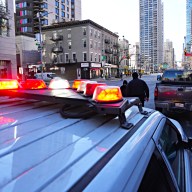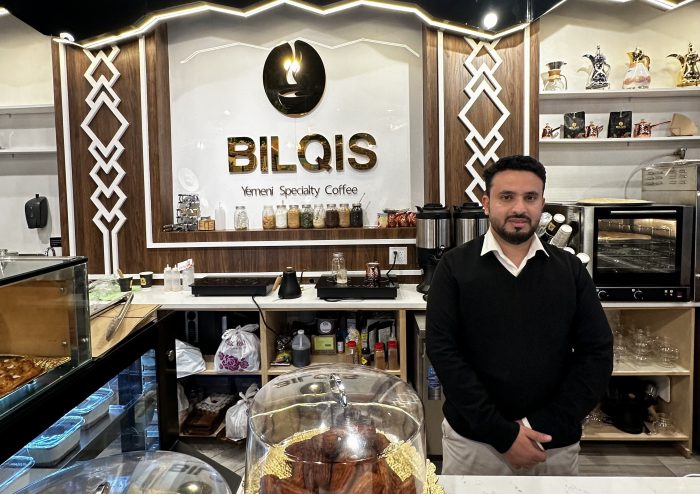Mayor Bill de Blasio declared a state of emergency in New York City on Thursday giving himself an extended set of powers to combat the rising number of positive coronavirus cases.
“We are now entering a situation that’s only analogy is to war,” said de Blasio during a press conference at City Hall. There are now 95 confirmed cases of the virus in the city, 42 more than yesterday, with 25 cases in Manhattan, 24 in Brooklyn, 17 in Queens, 10 in the Bronx and five in Staten Island. That is expected to rise up to 1,000 by next week, according to the mayor.
As of noon on Wednesday, the mayor added, there are 29 people in mandatory quarantine and 1,784 in voluntary quarantine. Only one person so far has left mandatory quarantine and “returned to normal life. ”
Earlier today, Governor Andrew Cuomo banned all public gatherings of 500 people for the “foreseeable future” to reduce density and prevent rapid spreading of the virus. At Thursday’s press conference, the Mayor used his new powers to mandate that all bars and restaurants decrease their capacity, or the number of people they can let into their establishments, by 50 percent. This rule also applies to public gatherings of less than 500 people, the mayor said.
The mayor also authorized that 10 % of the city’s workforce, or about 35,000 people, to work from home and for 20 %, or 70,000 people, of the remaining workforce to be placed on scattered schedules. In order to help those who face financial hardship from scattered work patterns, the mayor advised New Yorkers to call 311 for free legal help. In some cases though, particularly for those facing eviction, the city could provide some short term support, the mayor said.
As another form of social distancing, the mayor urged political candidates to suspend door-to-door canvassing as well as rallying and instead opt for less personal means of campaigning like phone banking, sending social media and email updates or placing television or radio ads. Concerns over the 2020 Census were raised for that same reason. Census takers are scheduled to start visiting homes in May and the city is now mulling over how to sway the federal government into stopping home visits or delay the census entirely.
“My fear right now is that there won’t be any change from Washington,” said de Blasio. ” It’s almost impossible to engage in the census without some kind of in-person activity but we can alter the nature of in-person activity.”
To help ease fears among the homeless, the city has now trained 550 outreach workers on how to educate street homeless New Yorkers on the symptoms of coronavirus and what to get help if they start feeling ill. Outreach workers have spoken to 776 street homeless New Yorkers so far, according to the mayor.
Despite petitions from public school parents and a Bronx public school student showing signs of the virus, public schools and transportation will remain open “at all costs,” the mayor said.
“It’s going to get a lot worse before it gets better, ” said de Blasio. “This is going to be a long battle.” The public health crisis is predicted to last up to six months in the city with an indefinite recovery period.
